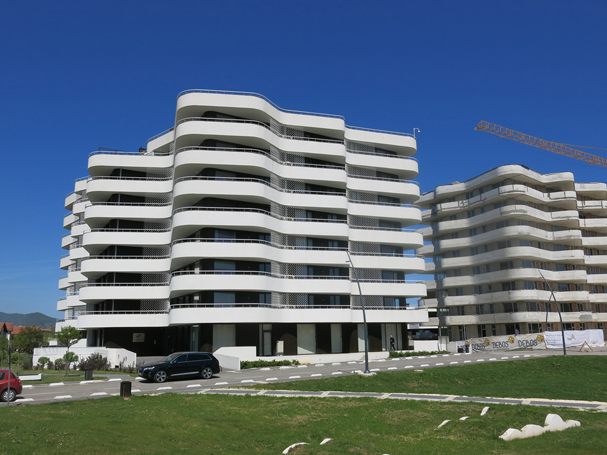The Gulf in Bosnia and Herzegovina: An (Un)Intentional Consequence of Peace
Dr Mirna Pedalo, Goldsmiths, University of London
Awards 2019 RIBA President's Awards for Research
Category Cities & Community
This research was the winner for the 'Cities & Community' category in the 2019 RIBA President's Awards for Research.

Through the analysis of the surge in the real-estate development in post-1990s-war period in Bosnia and Herzegovina this research project aims to map the ways in which the country has been striving to position itself in relation to the movements of global capital. The project primarily scrutinises the Dayton Peace Agreement in its role as a state-building mechanism; a distinct and crucial element that sets this phenomenon apart from its global counterparts. In order to tackle and unpack the complexity of this condition a blend of different methodologies has been chosen.
Operating within a specific ethno-religious context, underlined by the structural violence deeply embedded in its very core, the Dayton Peace Agreement helped produce a new milieu conducive to the flow of global capital. This project focuses on the influx of capital from the Gulf States, which has challenged the pre-existing binary relationship between the Dayton Peace Agreement and ethno-religious identities. The new milieu resulting from this intense encounter has allowed for corruption and underhanded practices, such as deregulation of planning policies or land grabbing, to thrive and has endorsed the use of religion as an investment bait. The investigation of the condition on the ground in relation to what has been promised versus what is (subsequently) allowed as per urban planning regulations, was carried out through the production of maps. The conflation of different types of data transformed into a visual output has been a key mechanism driving this practice-led research project.
The new triangular relationship, established between this state-building mechanism, financial flows and ethno-religious identities, has produced a new spatial and territorial order in Bosnia and Herzegovina. While turning the Dayton Peace Agreement into a de facto instrument of finance, this process is at the same time rearranging the existing social and demographic landscapes of the country.






